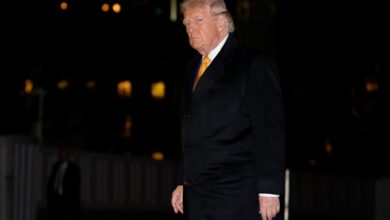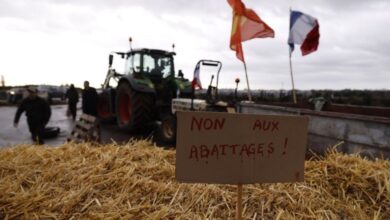Support for Ukraine In Europe Dwindles As Winter Approaches
There are protests in different European countries against Russian sanctions because winter is approaching and Russian gas is scarce.

Photo: Pixabay
Latinamerican Post | Moises Campos
Listen to this article
Leer en español: El apoyo a Ucrania en Europa disminuye mientras el invierno se acerca
Support for Ukraine in Europe dwindles as winter approaches. This has been happening, although the whole world has seen the recovery of Ukrainian control of more than 3,000 square kilometers of territory after its counterattack against Russia.
In addition to the surprise in the counteroffensive, another key factor in achieving this progress is the proper use of Western weapons.
These include the British and American long-range missile platforms. These weapons are being used in the destruction of Russian supply lines, ammunition dumps, and command posts.
Is Europe's support for Ukraine decreasing?
Before Ukraine received this arms aid, Russia had been holding a numerical advantage in artillery. However, the current situation is perceived differently and these Ukrainian advances are considered very relevant in the political aspect.
Read also: Queen Elizabeth's Death Reopens The Republican Debate
But today, Ukraine must undertake the search for the necessary strategies in order to maintain the support of the West as winter approaches Europe.
This is because every day more people in Europe are taking to the streets to ask their governments to lift sanctions against Russia. The objective of these street protests has been to express their indignation at the growing increase in energy prices and the inflation caused by the aforementioned sanctions.
Why are energy costs rising?
Gas prices increased after Russia decided to reduce the amount it sends to Europe. This is in direct retaliation for the Western sanctions that were applied after the invasion of Ukraine.
However, Russia blames the United States and its allies for pursuing an economic war against Russia with the most severe sanctions in modern history and has warned them that they will have to face an energy crisis.
Since this war began, European Union customers have pledged to lessen their dependence on Russian energy, while Russia has cut or shut down three of its largest gas pipelines to the west and redirected the flow of oil to the East.
Gas prices depend on global competition, and European buyers must contend with other countries for available gas that does not come from Russia. So, higher demand and lower supply cause prices to rise.
More expensive gas, combined with other factors such as the inconvenience of French nuclear plants and a severe drought in Europe, are the causes of higher energy costs.
Reasons for rising inflation
The economy of the European Union is being affected by the war between Russia and Ukraine. There has been a vertiginous increase in energy prices, which has increased inflation to historical highs.
Ukraine and Russia are the producers of approximately a third of the world's wheat and barley and are among the main exporters of metals.
Disruptions in supply chains, added to the increase in the cost of most raw materials, have caused an increase in the price of food, and other basic goods and services. This represents a severe burden for companies and the reduction of their purchasing power.
What to expect for the coming winter in Europe?
When the war started, most European countries managed to consolidate their union and establish agreements on financial support and donation of weapons to Ukraine. Furthermore, they agreed to stop making use of Russian energy, as well as designed sanctions to hit Russia.
However, as time has passed, officials across Europe fear this consensus could break as the continent approaches a severe winter. In it, rising food prices, energy constraints to heat homes, and the imminent possibility of a recession are forecast.
The next few months will surely be the toughest for Europe since the war began. Europeans will suffer from the cost of living crisis across the continent. Some will have the need to choose between feeding themselves or heating their homes.
This crisis is going to take place when many European countries have already received thousands of Ukrainian refugees. In this way, it will be difficult for political leaders to justify the use of money and energy in support of a distant country.
A host of Western officials have expressed concern that, at some point, political leaders will make a decision to negotiate a peace agreement and thus change the ultimate goal set by Ukraine, which is to require the Russian military to come out of its territory.





